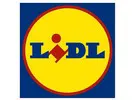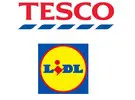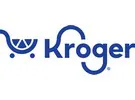Northern Ireland: Lidl Northern Ireland ploughs record £347 million into local agri-food industry Lidl Northern Ireland has ploughed a record £347 million into the agri-food industry here in the last financial year ending February 2022 and supported 60 local producers to success, a new impact report has revealed. Developed with the support of the Northern Ireland Food & Drink Association, the new report highlights the retailer’s significant economic contribution to the agri-food industry and underscores its longstanding commitment to sourcing produce locally.
Lidl Northern Ireland has ploughed a record £347 million into the agri-food industry here in the last financial year ending February 2022 and supported 60 local producers to success, a new impact report has revealed. Developed with the support of the Northern Ireland Food & Drink Association, the new report highlights the retailer’s significant economic contribution to the agri-food industry and underscores its longstanding commitment to sourcing produce locally.
The report also found that of that £347 million, £298 million worth of goods procured by Lidl Northern Ireland from suppliers in the region was exported globally through Lidl’s expansive store network. From Irwin’s freshly baked bread to Wilson’s Country potatoes, as well as tasty baked treats from Sperrin Bakery, shoppers are enjoying a real taste of home with an increasingly expansive line of authentic Northern Irish produce.
Source: Farming Life
Ukraine: Kherson residents stock up as first Ukrainian supermarket opens
Hundreds of Kherson residents flocked on Sunday to buy groceries at the first Ukrainian supermarket to open since the city was retaken by pro-Kyiv forces earlier this month. During the almost nine months of occupation, the Russian-installed government had brought in Russian-sourced products and introduced the ruble as currency. "Out of principle, I didn't carry any rubles and never bought Russian goods," 49-year-old Nataliia Tsvihun said while standing in line outside the ATB store. "I want to buy something tasty."
Source: Reuters
UK: Tesco wants to squash Lidl's attempt to build a new store Lidl is continuing to press ahead with plans for a new store in Crediton despite a bid from Tesco to quash the planning permission. Plans for the supermarket for the Lords Meadow Industrial Estate were given the go-ahead in September. The plans also include a £400,000 contribution to assist Crediton Rugby Club in relocating to their much longed-for new facilities.
Lidl is continuing to press ahead with plans for a new store in Crediton despite a bid from Tesco to quash the planning permission. Plans for the supermarket for the Lords Meadow Industrial Estate were given the go-ahead in September. The plans also include a £400,000 contribution to assist Crediton Rugby Club in relocating to their much longed-for new facilities.
The new store, along with 114 parking spaces, servicing and landscaping is due be built on playing fields at Commercial Road, Lords Meadow Industrial Estate in the town , about half a mile from the town centre. Widespread support has been shown for the development. Out of 319 letters of representation, 300 were in support. But subsequently, Tesco wrote to Mid Devon District Council, requesting the existing Planning Permission is quashed, which could lead to a formal legal challenge.
Mid Devon District Council planners will determine the fate of the application at a later date.
Source: DevonLive
Spain: Supermarket chain promising to ‘save 10% in the shopping basket’ expands in Spain The Supeco chain of supermarkets continues to expand throughout Spain with their marketing promise to ‘save you 10% in the shopping basket’. As consumers face daily economic hardship in Spain, finding cheaper ways of feeding the family is high on the list of necessities. The Supeco chain makes a promise on their website to ‘save you 10% in the shopping basket’, a claim that has reportedly won this supermarket more and more followers. Owned by supermarket giant Carrefour, there are already in excess of 50 Supeco establishments throughout Spain. These are located in Galicia, Cantabria, Castilla y Leon, Catalonia, the Valencian Community, Castilla-La Mancha, the Community of Madrid, Extremadura, Andalucia, and Ceuta. According to Noticiastrabajo.es, Carrefour has an expansion plan for this low-cost model of supermarket with which it hopes to open 80 new stores globally as part of its strategy until 2026.
The Supeco chain of supermarkets continues to expand throughout Spain with their marketing promise to ‘save you 10% in the shopping basket’. As consumers face daily economic hardship in Spain, finding cheaper ways of feeding the family is high on the list of necessities. The Supeco chain makes a promise on their website to ‘save you 10% in the shopping basket’, a claim that has reportedly won this supermarket more and more followers. Owned by supermarket giant Carrefour, there are already in excess of 50 Supeco establishments throughout Spain. These are located in Galicia, Cantabria, Castilla y Leon, Catalonia, the Valencian Community, Castilla-La Mancha, the Community of Madrid, Extremadura, Andalucia, and Ceuta. According to Noticiastrabajo.es, Carrefour has an expansion plan for this low-cost model of supermarket with which it hopes to open 80 new stores globally as part of its strategy until 2026.
Source: EuroWeekly News
US: Retailers plan to increase online spending in 2023
Grocery operators’ spending to support digital transactions will increase by 2.3% next year despite a 1% shrinkage in technology budgets, reports Grocery Doppio, a grocery insights and data provider, in its State of Digital Grocery Performance Scorecard for October 2022 report. In addition, 23% of grocers plan to increase their technology spend on digital in 2023 versus a year earlier, Grocery Doppio found in its October survey of 200 U.S. grocery executives.
Fulfillment efficiencies, cited by 77% of respondents, will be among the three most popular investments next year, along with digital basket size nurturing (67%) and system-wide inventory data accuracy/transparency (55%), the survey found. In addition, 18% of respondents cited AI decision capabilities and 15% listed robotics for fulfillment as the new technologies that they plan to test and deploy the most next year. Digital’s portion of the overall grocery transaction market, meanwhile, is climbing. Digital grocery sales reached $11.8 billion in October, a 12.4% leap from September. Digital grocery sales through third-party providers, meanwhile, is slowing with third parties’ share of digital declining 1.8% to 20.9% in October
Source: Supermarketnews
US: What the proposed Albertsons-Kroger merger could mean in Alaska A $25 billion deal that would unite Fred Meyer and Carrs Safeway grocery stores under one corporate umbrella is raising unique concerns in Alaska, where the stores are the dominant urban grocers in an isolated state with limited competition. Kroger, the parent company of Fred Meyer, and Albertsons, parent of Carrs Safeway, announced plans to merge last month. The deal, if approved by the Federal Trade Commission, would create a grocery behemoth affecting food shopping and delivery across most of the U.S.
A $25 billion deal that would unite Fred Meyer and Carrs Safeway grocery stores under one corporate umbrella is raising unique concerns in Alaska, where the stores are the dominant urban grocers in an isolated state with limited competition. Kroger, the parent company of Fred Meyer, and Albertsons, parent of Carrs Safeway, announced plans to merge last month. The deal, if approved by the Federal Trade Commission, would create a grocery behemoth affecting food shopping and delivery across most of the U.S.
 The two retail giants have said they will invest to improve the customer experience, reduce prices and increase wages and worker benefits. Experts say the combined chains will likely be required to sell off some stores in Alaska and other states to keep competition alive, though that raises concerns about whether any company can successfully compete against them. Critics in Alaska, echoing national concerns, argue that the deal could lead to higher prices as competition and potentially stores are reduced, harming neighborhoods, jobs and food selection.
The two retail giants have said they will invest to improve the customer experience, reduce prices and increase wages and worker benefits. Experts say the combined chains will likely be required to sell off some stores in Alaska and other states to keep competition alive, though that raises concerns about whether any company can successfully compete against them. Critics in Alaska, echoing national concerns, argue that the deal could lead to higher prices as competition and potentially stores are reduced, harming neighborhoods, jobs and food selection.
Source: AND
US: Southeastern Grocers exploring sale, report says The Wall Street Journal is reporting that that Jacksonville-based Southeastern Grocers Inc., the parent company of Winn-Dixie, Harveys and Fresco y Más, is exploring a sale, citing people familiar with the matter. The report comes about a year after the supermarket operator canceled its plans to go public. The Journal reported the company is in talks with prospective buyers, according to its sources. It said that if a deal goes through, it would be another sign of consolidation in the U.S. supermarket sector.
The Wall Street Journal is reporting that that Jacksonville-based Southeastern Grocers Inc., the parent company of Winn-Dixie, Harveys and Fresco y Más, is exploring a sale, citing people familiar with the matter. The report comes about a year after the supermarket operator canceled its plans to go public. The Journal reported the company is in talks with prospective buyers, according to its sources. It said that if a deal goes through, it would be another sign of consolidation in the U.S. supermarket sector.
Source: Jax DR
US: Targets third quarter profit drops 52% An unexpected and potentially ominous pullback in customer spending ahead of the holiday shopping season pushed third-quarter profits at Target down 52% after it was forced to slash prices with Americans feeling the squeeze of inflation. The Minneapolis retailer voiced caution about its sales and profit during the fourth quarter because of what it’s seen from its customers in recent weeks. They’re waiting for sales rather than buying goods at full price, and finding ways to cut down on spending in other ways as well.
An unexpected and potentially ominous pullback in customer spending ahead of the holiday shopping season pushed third-quarter profits at Target down 52% after it was forced to slash prices with Americans feeling the squeeze of inflation. The Minneapolis retailer voiced caution about its sales and profit during the fourth quarter because of what it’s seen from its customers in recent weeks. They’re waiting for sales rather than buying goods at full price, and finding ways to cut down on spending in other ways as well.
Target said that will be slashing expenses with a goal of saving $2 billion to $3 billion over the next three years. Those cost cuts will not include widespread layoffs or hiring freezes, executives said.
Target’s quarter arrives amid a backdrop of resiliency from American consumers. Spending by the American consumer is shifting, with many trading down to cheaper options, and to stores where they think they can save money. That was evident at Walmart, which reported better-than-expected earnings Tuesday. One factor: more than 50% of Walmart’s U.S. business comes from groceries; that number is 20% at Target. With inflation all around, households take care of needs like food and shelter first.
Source: Post-Journal
